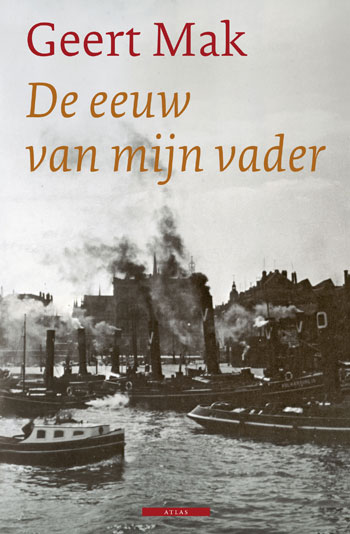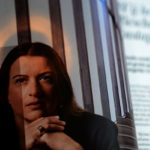Image shows a map of the stars inlaid in the floor of the Amsterdam City…
Could have known, should have known
 Have just finished my fathers century by Geert Mak – everything I always wanted to know about the Netherlands in the 20th century, but was ill equipped to ask. We should have been taught history at school from the top down – that is, starting with the most recent events and working our way back . As it is, I know much and much more about the middle ages than about my own.. …I tend to call the 20th century ‘mine’, even though I will hopefully straddle the fence between 20th and 21th. Anyway, it was a revelation to read up on recent Dutch history – never knew for instance that real war crimes were committed by the Dutch in Indonesia right after the second world war. Could have known, should have known, but didn’t.
Have just finished my fathers century by Geert Mak – everything I always wanted to know about the Netherlands in the 20th century, but was ill equipped to ask. We should have been taught history at school from the top down – that is, starting with the most recent events and working our way back . As it is, I know much and much more about the middle ages than about my own.. …I tend to call the 20th century ‘mine’, even though I will hopefully straddle the fence between 20th and 21th. Anyway, it was a revelation to read up on recent Dutch history – never knew for instance that real war crimes were committed by the Dutch in Indonesia right after the second world war. Could have known, should have known, but didn’t.
The Mak family history plays itself out on a stage I know rather intimately – the Protestantse Zuil. I was brought up in this sub-section of society (now almost extinct) that went to church twice every sunday and went to war on itself on the question of ‘did the serpent in Paradise really speak’. An environment that venerated the Word, and in which words were all-important. I escaped to the world of numbers later on, and became a wanderer in the world of the images even later.
Adapted from Wiki The Netherlands has been since the very beginning in the early 1920s split up into different ideological sections , called “Verzuiling” (pillarisation). Catholics, Protestants and Socialists were the first groups to create their own sections of society, including their own schools, hospitals, unions and political parties.
Anyway, some Mak quotes (my clumsy translation):
page 461: Things developed just as the great theologist and resistance fighter Dietrich Bonhoeffer predicted in 1945, just before his execution. The churches had fought for self-preservation to such a high degree that they were unable to bring the Word of conciliation and salvation to the people. ‘The time that one could tell people everything with words – theological words, pious words – has passed, and also the time of introspection and conscience. In short: the time of religion.’
How very Protestant is the thought that religion equals words.
page 496: it is truly strange, I think, that one belief system has not eroded: we still proclaim ourselves to be Dutch. We aren’t so much Netherlanders any more, but we feel that we are. We feel a connection to Dutch history, we have the – elusive – idea that we share a common destiny with all those other Dutch, that we have been through a lot of history and change together. What is it that unites this modern nation, now that religious and ideological strongholds have surrendered and the good old red-white-and-blue flag is usually flying in a row with other nation’s emblems? I think that these ties have to do with what is called by some ‘civic religion’: a largely pent-up mixture of ideas, values and shared memories. This ‘civic religion’ used to be spread by school and church, and is the permanent undertone of debates these days in newspapers, in parliament, in the news broadcast, in the selection for the national soccer team, in the ANWB signposts, in the HEMA shop windows and in thousands of other signals that hit the civillian and tell him: this is the Netherlands.
The Netherlands are steeped in this ‘civic religion’: even though the churches are at low ebb, we are still calvinists. More than anything else this must be the deepest reason for our unwillingness to be proud of ourselves, our tendency to play the missionary to the world, our mania to be and be seen as equals and our blindness for the dark spots in our own history. Our norms and standards are high: in fact it we are guided by the calvinist ideal of the ‘imitatio Christi’, the following of Christ. Its antipode – failure, ‘sin’ – is something us calvinists never managed to get on speaking terms with.
Question is how long this will last. A new Netherlands is in the making, and fast, a Netherlands in which – apart from a growing globalisation in the media, music, fashion and other trends- other cultures will influence the ‘civic religion’. This means that our way of life is changing, and also that our shared memories will be re-evaluated and re-told.
Something to study, then, before it evaporates: this idea of Dutchness. Re-tell some of its history? Can this be done from-the-inside-out?
| « Treasure | <-- previous post | next post --> | Torn again, born again » |
|---|







